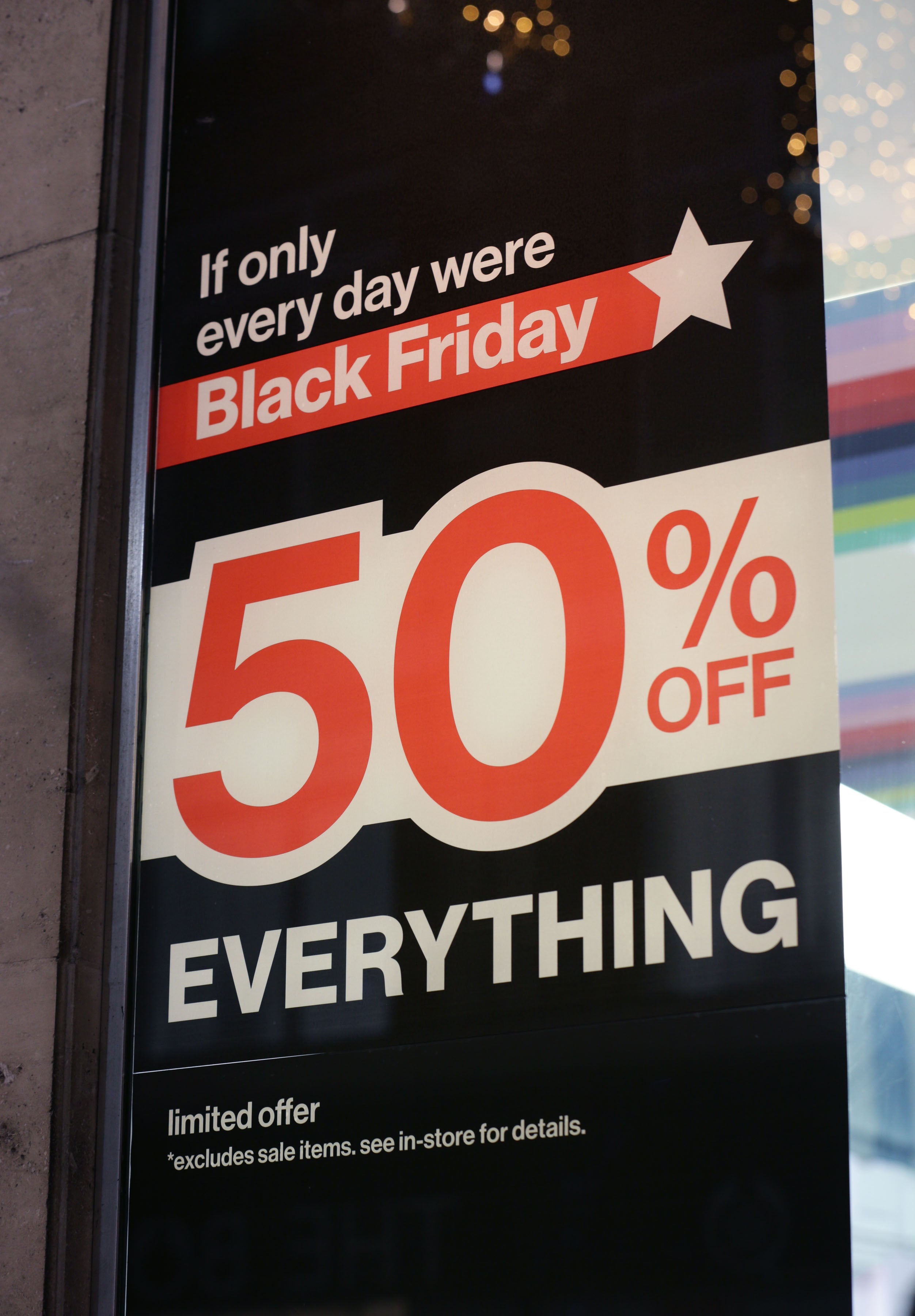The Independent's journalism is supported by our readers. When you purchase through links on our site, we may earn commission.
Spare me the Black Friday poverty porn and remember who the real victims are
Instead of turning your nose up at the working classes fighting over TVs, consider what this day says about the retailers begging for your buck


I despise Black Friday. It represents the worst impulses of American capitalism and the commercialization of my favorite holiday. Black Friday is epitome of consumerism — a depraved ritual in which the greedy, filthy masses clobber one another over flatscreen televisions and whatever this year’s Tickle-Me Elmo is.
At least, that’s what many of us tell ourselves. There is a veritable cottage industry of poverty porn that pops up this time every year. Videos of Black Friday shoppers rushing into stores and fighting over goods go viral, and the chattering classes all tut at the “savages” who just don’t remember the reason for the season.
So prominent is this narrative in the popular imagination that a website, the Black Friday Death Count, was created to document the violence, injury, and sometimes even death wrought in this annual orgy of conspicuous consumption. Yet the reality of Black Friday is far more complex, belying the exploitation and inequality inherent in our economy.
In truth, the real villain of Black Friday is not the teeming hoard of shoppers. Rather, it is the economic system that compels them in their desperation to fight for over material goods and resources for the profit of big business.
As a child, I remember the heady excitement of my mom and aunt preparing to wake up extra early so they could be at K-Mart by 5am to make sure they got the best deals for the Christmas season. Huddled together, they would plan their shopping trip like a quarterback decides a play in the final minutes of a Thanksgiving football game.
We were, at best, working class. Black Friday deals could mean the difference between a good and a bad Christmas, and that difference was quantified in presents under the tree. From Eartha Kitt purring about her greed in “Santa, Baby” to Arnold Schwarzenegger throttling Sinbad over a toy in “Jingle All the Way,” pop culture tells us Christmas is about the goods.
As an adult, I recognize this — as well as the motivation my mom felt to get these goods. Perhaps that is why last year, over a third of Americans went into debt for Christmas, with each family on average going $1,381 in the hole. It could be even worse for Americans’ pocketbooks this year, with 45 percent of us saying we’re willing to go into debt over the holiday season.
Black Friday deals presented an opportunity for my mom to give me and my siblings the best Christmas she could afford. The same is true for most Black Friday shoppers; while demographic data on Black Friday shoppers can be hard to come by, what information we do have suggests “Black Friday shoppers are… largely the racialized poor clambering for material goods that they are often denied,” as Vice reported in 2015. Black Friday sales tend to benefit low- and mid-market retailers more than luxury retailers for this very reason.
Obviously, the wealthy don’t need to care as much about discounts as those pinching pennies at the bottom. The Consumer Price Index has risen 5.4 percent over the past year, the largest increase since 2008. Meanwhile, wages have not kept up with inflation, being essentially stagnant since the 1970s. Meanwhile, inflation and the supply chain crisis are driving up prices.
This means that, relative to inflation, employees are earning less now than they were in December 2019. On top of that, housing and rental prices are historically high, with 70 percent of renters paying 50 percent of their monthly income in rent. In only seven percent of US counties can a minimum-wage worker afford a one-bedroom apartment at market rent.
Given this, it’s hard to begrudge put-upon consumers from trying to cash in on savings this Black Friday. But there are two sides to this coin of exploitation — the only kind of coin that ever seems to trickle down from our capitalist oligarchs.
I sympathize with the working class who see Black Friday as their only chance at obtaining material goods otherwise denied to them. Yet, it is important to remember that it is also the working class who are called upon to deliver those goods to the consumer.
According to the Census Bureau, 9.8 million Americans worked in retail in 2018. More than half of these jobs were held by women, while Black and Hispanic workers were also overrepresented in the sector. Retail workers were also more likely to live in poverty than those working in other sectors, the Bureau found.
These are the workers who are responsible for crowd control, for stocking and restocking shelves, for working the cash registers and the loading docks and everything else that keeps Black Friday deals coming. Already underpaid, they are put through hell every year so that goods that are already overpriced and produced through exploitation of cheap labor in the global South can be fought over by working class folks here in the West.
Don’t believe me? Last year for Black Friday, UK retailer Pretty Little Thing discounted their merchandise by up to 99 percent. This led to outrage from labor and human rights activists, who rightly pointed out that if the company could still make a profit selling clothing for five pence, they must be engaging in nefarious labor practices elsewhere in their supply chain.
Indeed, some of the worst abuses of capitalism occur in the supply chain. Delivering cheap goods to us in the West necessitates exploiting workers in the developing world, from those mining the minerals going into our phones to the garment workers manufacturing the clothes on our backs. These people are as forgotten as the beleaguered cashier forced from her family Thanksgiving to work the register at Walmart. Yet we couldn’t have Black Friday without the misery and sacrifices of both.
Which is why I hate Black Friday so very much. It is nothing but exploitation from the beginning of the supply chain to the end. Capital steals the labor of the working class, paying them a pittance to produce the goods, which are then sold by maltreated working class retail workers to other working class people who, without the Black Friday discounts — discounts which prove corporations overprice goods throughout the year — could not otherwise afford these material goods. It is obscene.
Black Friday shoppers are not the problem. Rather, the economic system is the problem. That’s why, this year, I’m asking Santa not for presents, but for an economic revolution that empowers the global working class.
Merry Christmas, you filthy capitalists.
Join our commenting forum
Join thought-provoking conversations, follow other Independent readers and see their replies
Comments
Bookmark popover
Removed from bookmarks